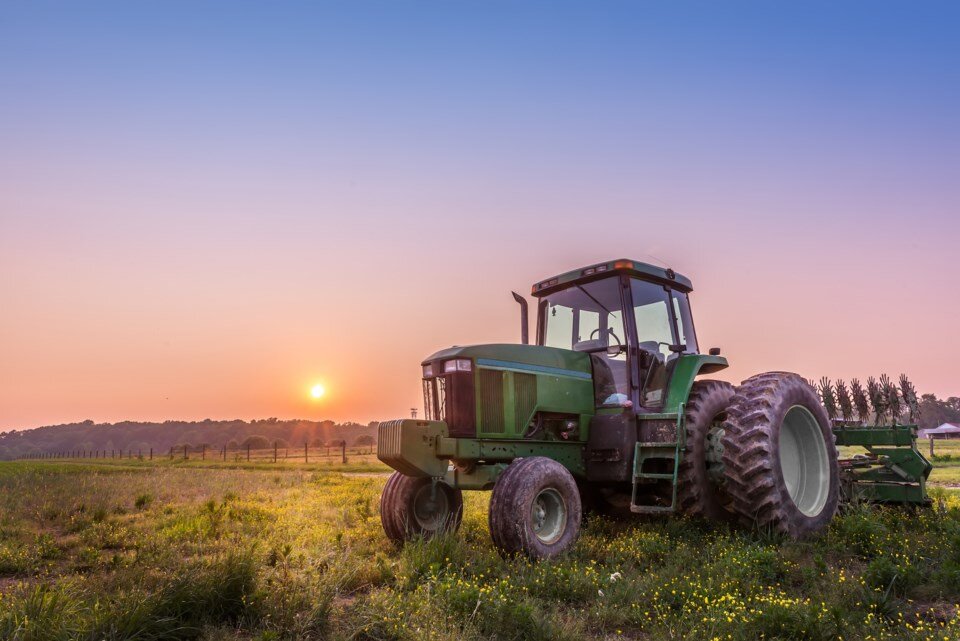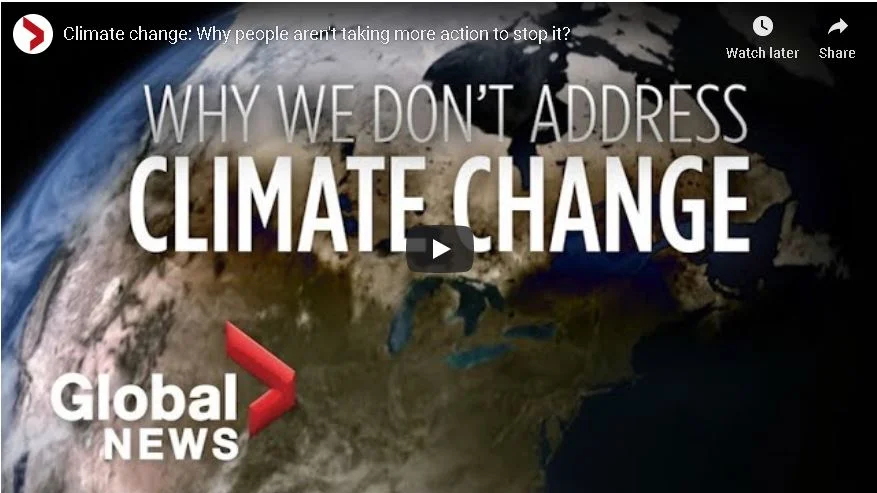The Canadian Agri-Food Policy Institute is recommending that governments across the country develop a national plan to sustainably manage and use water for the agri-food sector. In a report released Monday, the institute called for ambitious commitments from governments and partnerships with stakeholders to prioritize the critical natural resource.
Most of Western Canada's glaciers will melt in 80 years, University of Northern B.C. study finds
A study by international researchers using a supercomputer at the University of Northern British Columbia (UNBC) has found that most of Western Canada's glaciers will disappear by the year 2100. The study, "Global Glacier Change in the 21st Century: Every Increase in Temperature Matters" was published Thursday in the journal Science. "A child born today will witness the near-complete disappearance of one of western Canada's most iconic symbols glaciers," reads a statement from the university.
Investigators, cleanup crews begin scouring oil pipeline spill in Kansas
Emergency crews on Friday were preparing to labor through the weekend to clean up the largest U.S. crude oil spill in nearly a decade, with workers descending on this farming community from as far away as Mississippi. A heavy odor of oil hung in the air, according to a Reuters witness, as tractor trailers ferried generators, lighting and ground mats to a muddy site. Federal investigators were at the scene trying to help determine what caused a leak of some 14,000 barrels of oil from Western Canada, an official said.
House in Alberta built from more than 1M recycled plastic water bottles
Just outside Millet, Alta., there’s a home built entirely from recycled plastic water bottles. Ecoplast Solutions has almost finished turning 1.2 million empty water bottles into a house. “When you’re telling someone you are building a house out of recycled plastic water bottles, it’s hard to fathom,” Kelly Rogers said with a smile. Rogers is the managing partner at Ecoplast Solutions and is excited to get the word out about this new method of building homes.
The window of opportunity to address increasing drought and expanding drylands is vanishing
Chile, Argentina and the American West are in the midst of a decade-long, megadrought – the driest conditions those regions have seen in a century. And many areas in Western Canada and the United States are experiencing extreme drought – a once in 20-year event. Drought makes agriculture less productive, reduces crop yields and increases heat-related deaths. It adds to conflict and migration, as marginalized people are dispossessed of their land. In short, it leaves people more vulnerable.
Scientist sounds water crisis alarm
The megadrought affecting the western United States has prompted a scientist to warn that Canada’s prairie provinces need to better plan how water is used across the entire Saskatchewan river system. “A water expert from California we had up here a few years ago said that Alberta and Saskatchewan reminded him of California and Arizona around 1912,” said John Pomeroy, the Canada Research Chair in Water Resources and Climate Change at the University of Saskatchewan. “We’re still getting by OK, we have pretty loose agreements, everybody’s getting along, it’s fine – but we have trouble ahead.”
Food companies use 70 per cent of world's water, are unprepared for global water crisis: report
Last summer’s drought shrivelled crops in Western Canada. Vast swaths of prairie — typically bright with golden stalks of wheat and yellow canola flowers in bloom — faded to brown. The worst in 60 years , it shrunk national wheat production by 38.5 per cent ; canola by 35.4 per cent. Almost all of the agricultural land on the Prairies (99 per cent) was still abnormally dry or in moderate to exceptional drought as of Nov. 30, according to the Canadian Drought Monitor . And Canada isn’t alone in experiencing a prolonged 2021 dry spell. Brazil faced the worst drought in nearly a century, causing coffee crops to fail and power costs to soar. Antarctica was the only continent unaffected by an otherwise worldwide drought .
Prairie livestock producers facing shortage of feed, water as winter sets in
A national farm organization is asking the federal government to pitch in with efforts to move hay from the East Coast to struggling farmers and ranchers in Western Canada. The Canadian Federation of Agriculture is seeking financial support for its Hay West initiative, which aims to ship donated hay from Maritime farmers to drought-affected Prairie provinces.
BEYOND LOCAL: Ancient water management techniques may help farmers experiencing drought
This year witnessed one of the hottest and driest summers in recent history for Western Canada and the American Southwest. The resulting droughts adversely affected food supply and helped send meat prices rising three times faster than inflation. Despite the severity of these droughts, the worst may be yet to come. Extreme weather events are expected to become increasingly severe and frequent in the Prairies, with longer dry periods coupled with the risk of floods from intense rainstorms.
Maritime farmers doing 'what we can' to get surplus hay shipped to drought-stricken Prairies
Hay from the Maritimes could make its way to the Prairies later this week as livestock producers in Western Canada struggle with devastating drought conditions. The Canadian Federation of Agriculture (CFA) announced last week that it has started work to facilitate a initiative coined "Hay West," that will see surplus hay from farmers in eastern Canada sent west — where dire hay and feed shortages loom. Tim Marsh, president of the Nova Scotia Federation of Agriculture, said farmers in his province have extra and want to help out.
Thirsty? How floating islands could turn retention ponds into potable water
The Sprout: More Alberta communities declare drought disaster
We start with a drought update. More communities in Alberta have declared a state of agricultural disaster as drought continues to decimate crops across much of Western Canada. As CBC News reports, Rocky View County is the latest to make the declaration because of expectations of terrible yields this year. Meanwhile, ranchers in Alberta say they, too, are continuing to struggle and are worried about feeding their animals as the drought hits feed supplies. Global News has that story.
Salmon and other sea life affected by recent heat waves, experts say
A sweltering heat wave in much of Western Canada in the last week of June had cascading effects on sea life, experts say. Scott Hinch, director of the Pacific salmon ecology and conservation laboratory at the University of British Columbia, said juvenile salmon such as sockeye, coho and chinook in fresh water would have been most affected by recent heat waves. “They’re going to be living in fresh water for one to two years and it’s that life history stage, that this particular heat wave and just climate change in fresh water in particular, is going to have some of its greatest effects,” he said in an interview.
Cattle producers face challenging season thanks to drought
70-year-old Arnold Balicki says he has never seen a drought like this in his ranching area about 45 kilometres west of Prince Albert. The cattle producer and his family have to haul water to the pastures to make sure their animals have enough to drink. Other producers in the province have to do the same. "Our water supplies are dwindling very fast," said Balicki, who owns and operates the LB Ranch north of Shellbrook together with his family.
Alberta glacial melt about 3 times higher than average during heat wave, glaciologist estimates
The heat wave that scorched most of Western Canada last week accelerated the melting of alpine glaciers, a glaciologist at the University of Alberta told the Calgary Eyeopener on Tuesday. "It's very concerning," said Jeffrey Kavanaugh, an associate professor of earth and atmospheric sciences. In the mountains, temperatures cool down about 1 C with every 100 metres of elevation gain — but when record-breaking temperatures swept through the Rockies, even the highest alpine regions couldn't escape it.
Mustard Seed sounds urgent call for bottled water amid scorching heat
‘Incredibly destructive’: Canada’s Prairies to see devastating impact of climate change
As the climate continues to warm at an alarming rate, experts warn if dramatic steps to mitigate global warming are not taken, the effects in Canada’s Prairie region will be devastating to the country’s agriculture sector. According to Environment and Climate Change Canada, the country is warming, on average, about double the global rate. Scientists with the National Oceanic and Atmospheric Administration in the U.S. recently found 2020 was earth’s second-hottest year on record, with the average land and ocean surface temperature across the globe at 0.98 of a degree C above the 20th-century average. However, the agency found the northern hemisphere saw its hottest year on record, at 1.28 degrees C above the average.
Water shortages and yearly floods: Canada won’t escape climate crisis, UN report says
Damage to Earth’s oceans and glaciers from climate change is outpacing the ability of governments to protect them, a new report from an international scientific panel concludes. “The capacity of governance systems in polar and ocean regions to respond to climate change impacts has strengthened recently,” says the Intergovernmental Panel on Climate Change. “But this development is not sufficiently rapid or robust to adequately address the scale of increasing projected risks.”




















